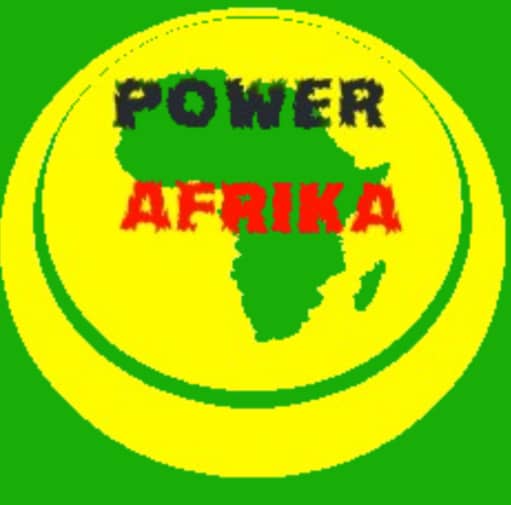
In a dramatic turn of events, three Americans jailed over a failed coup in the Democratic Republic of Congo (DRC) have been repatriated to the United States to serve the remainder of their sentences, marking a significant moment in US-DR Congo relations. The story, which unfolded over the past week, highlights the complexities of international diplomacy, justice, and the geopolitical stakes tied to Africa’s vast mineral wealth. At PowerAfrika, we’re diving into this headline to explore its implications for African sovereignty, justice systems, and the continent’s youth, who often bear the brunt of such political upheavals. This story resonates deeply with our mission to advocate for fairness and pride in African governance, making it a critical topic for our audience.
A Failed Coup and Its Aftermath
On May 19, 2024, a group of armed men, led by Christian Malanga—a US-based Congolese opposition figure—attempted to overthrow the DRC government in Kinshasa. The botched coup targeted the presidential palace and the residence of then-economy minister Vital Kamerhe, resulting in the deaths of six people, including Christian Malanga himself. Among the 37 individuals convicted by a Congolese military court in September 2024 were three Americans: Marcel Malanga (Christian’s 21-year-old son), Tyler Thompson (22), and Benjamin Reuben Zalman-Polun (36). Initially sentenced to death for charges including criminal conspiracy and terrorism, their sentences were commuted to life imprisonment by President Felix Tshisekedi on April 3, 2025. Following high-level talks involving US President Donald Trump’s senior Africa adviser, Massad Boulos, the trio was repatriated to the US on April 8, 2025, to serve their sentences. The US Department of Justice has since charged them with conspiring to overthrow the Congolese government, ensuring they remain behind bars in the US.
The coup’s motivations were rooted in Christian Malanga’s vision of establishing a “New Zaire,” a reference to the DRC’s name under dictator Mobutu Sese Seko. Marcel Malanga later claimed during the trial that his father had threatened to kill him and his companions if they didn’t participate, painting a picture of coercion amid a deeply flawed operation. The repatriation deal, finalized in Kinshasa, was described by the Congolese presidency as a step toward “strengthening judicial diplomacy and international cooperation in matters of justice and human rights.” However, it also coincides with ongoing negotiations between the US and DRC over access to Congo’s vast mineral resources, raising questions about the intersection of justice and geopolitics.
PowerAfrika’s Opinion: Justice, Sovereignty, and the African Narrative
At PowerAfrika, we view this incident through the lens of African sovereignty and the broader implications for DR Congo justice. While the repatriation of the three Americans reflects a diplomatic win for US-DR Congo relations, it also underscores a troubling pattern: foreign powers often exert influence over African legal systems, especially when strategic interests like minerals are at play. The DRC’s decision to commute the death sentences and transfer the Americans—amid talks of a minerals-for-security deal—suggests that justice may have been overshadowed by geopolitical bargaining. PowerAfrika believes that African nations must prioritize their sovereignty, ensuring that justice serves the people of the continent, not foreign agendas. This echoes our ongoing campaign to rename Kotoka International Airport in Ghana, where we advocate for reclaiming African narratives and rejecting legacies tied to betrayal and external influence. Join us in this fight for African pride at powerafrika.com/rename-kotoka-airport.
For African youth, this story is a reminder of the stakes involved in political instability. The DRC’s eastern region continues to suffer from violence fueled by armed groups, and such coup attempts only deepen the insecurity that hinders opportunities for the younger generation. PowerAfrika calls for greater investment in youth empowerment—through education, sports, and infrastructure—to prevent them from being drawn into such conflicts, whether by coercion or desperation.
Empowerment Tools for African Communities
In the wake of political unrest, communities in the DRC need resources to rebuild and thrive. A reliable water pump can ensure access to clean water in conflict-affected areas—check out this water pump on Amazon to support local resilience. Similarly, a solar charger can keep communication lines open during crises, empowering youth to stay connected and informed—find one here on Amazon. To amplify the voices of those affected by such events, consider creating impactful videos with Renderlion, an AI video generator that can help share stories of resilience globally. For leaders and activists looking to navigate these complex issues, the MBL course by Phil Johnson offers insights into strategic leadership, fostering the skills needed to advocate for justice and sovereignty in Africa.
Little Known Facts
The failed DR Congo coup story reveals some surprising little known facts that deepen our understanding of the incident and its context. Did you know that the DRC, once known as Zaire from 1971 to 1997, has the world’s second-largest rainforest, which covers 60% of its territory and plays a critical role in global carbon sequestration? This environmental treasure is often overshadowed by the country’s political turmoil. Another intriguing detail: Christian Malanga, the coup’s leader, was suspected by Congolese intelligence of attempting to assassinate former President Joseph Kabila in the early 2000s, a claim that highlights his long history of opposition to DRC leadership. Finally, the coup attempt involved the use of the old Zaire flag by Malanga’s group, a symbolic gesture meant to evoke nostalgia for Mobutu’s era—an era that, despite its authoritarianism, some Congolese still associate with national stability. These facts remind us that the DRC’s challenges are deeply rooted in history, politics, and the global fight for its resources, a narrative PowerAfrika is committed to unpacking.
